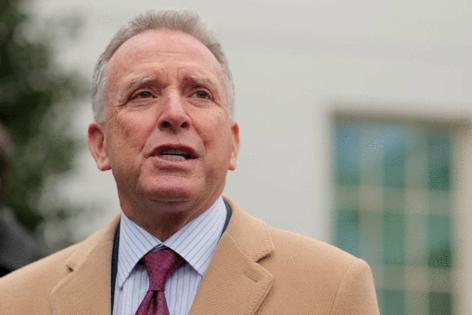US rushes to shore up Gaza deal as fresh violence raises doubts
Published in News & Features
The Gaza truce that President Donald Trump hopes to parlay into broader Middle East peace is under fire, with Israel and Hamas accusing each other of violations even as international envoys arrive to stabilize the shattered Palestinian enclave.
Palestinian media on Sunday reported three Israeli air strikes in Gaza, and the Israel Defense Forces said Hamas had carried out attacks on its troops beyond a key demarcation line, calling it “a brazen violation of the ceasefire.”
Separately, an Israeli official said there are tentative plans for Trump’s vice president, JD Vance, to accompany White House mediator Steve Witkoff to the region in the coming week, a signal of U.S. seriousness about shoring up the deal. The U.S. embassy in Jerusalem had no immediate comment.
Hamas agreed to a ceasefire from Oct. 10, with Israeli troops and tanks pulling back to allow Palestinians greater freedom of movement after two years of war. But the Islamist faction has balked at Trump’s demand that it disarm and cede power to a foreign-supervised alternative Palestinian government.
The White House, having broken with decades of U.S. convention by directly engaging Hamas despite its own State Department’s designation of the group as terrorists, has taken a harsher tone. Trump condemned a lethal internal crackdown by Hamas, warning that if it continues “we will have no choice but to go in and kill them.”
Hamas defended its actions as a law-and-order effort in the parts of the Gaza Strip vacated by the Israeli army, and has said it remains committed to the ceasefire.
On Sunday, Hamas official Ezzat Al-Risheq said on the group’s Telegram feed that Israel “continues to violate the agreement and fabricate flimsy pretexts to justify its crimes.”
Israelis, meanwhile, are worried by the uncertain return of the remains of slain hostages from Hamas’ Oct. 7, 2023 raid, which triggered the multi-front conflict centered on Gaza. The last living hostages were freed a week ago, but the bodies of 16 remain unaccounted for, with Hamas saying special equipment is needed to search for them in the Gaza ruins.
The reopening of Rafah crossing on Gaza’s southern border with Egypt, another key condition of the Trump plan, has been deferred indefinitely by Israel. The movement of aid has been increased through Israel’s border, but on a scale that Palestinians say falls short of the requirements of Gaza’s 2 million residents, most of whom are homeless after much of the enclave has been reduced to rubble.
In a statement on Saturday, Israeli Prime Minister Benjamin Netanyahu linked the Rafah measure to “the manner in which Hamas implements its part of the hostage recovery and the implementation of the agreed deal.”
A member of his security cabinet, Transport Minister Miri Regev, took a tougher line, telling Israel’s Army Radio: “We haven’t concluded this war. If Hamas doesn’t lay down its arms after all hostages are recovered, we shall go back to active combat.”
Yellow line
Hamas has accused the U.S. of turning a blind eye to the killing of 27 Palestinians by Israeli forces after the truce went into effect. Israeli officials say the army opened fire to prevent incursions across the so-called “yellow line” marking the more than 50% of Gaza under its control — and that the demarcation will be made clearer in future with a row of yellow stanchions.
Trump’s deal won the support of Arab, Muslim and Western powers, several of which have voiced interest in contributing to a postwar stabilization force in Gaza.
A multinational force is now assembling in Israel, with military delegates from least two other countries joining the U.S. lead, according to an official who requested anonymity. Germany’s defense ministry said on Saturday it had sent three soldiers to the Civil Military Coordination Centre in southern Israel.
Picking a winner
A poll on Israel’s Channel 12 TV on Friday found that 36% of Israelis believe their country won the war while 9% saw Hamas as victorious, while 48% said neither side did.
Netanyahu, who said Saturday he plans to run for election again in 2026, may not be in a rush to resume a conflict which put strains on the conscript military and whose toll on Palestinian civilians plunged Israel into global isolation.
Two years of war caused more than 67,000 deaths in Gaza, according to the Hamas-run health ministry, which doesn’t distinguish between combatants and civilians.
Netanyahu, like Trump, also wants to to expand wider Israeli-Arab peacemaking launched during the U.S. president’s first term. “We have several things to carry out before the election, such as a few more peace accords in the region,” Netanyahu spokesperson Guy Levy told Galey Israel radio.
_____
(With assistance from Ethan Bronner, Michael Nienaber and Sara Gharaibeh.)
_____
©2025 Bloomberg L.P. Visit bloomberg.com. Distributed by Tribune Content Agency, LLC.







Comments